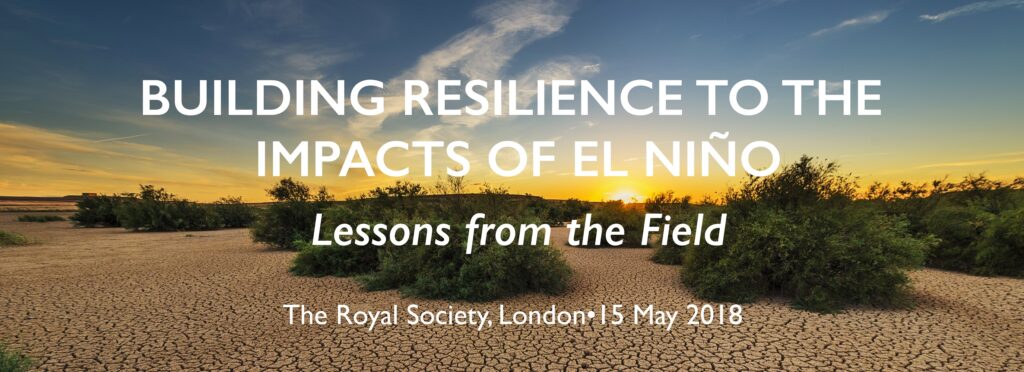University of Oxford
11a Mansfield Rd
OX1 3SZ
UK
In response, NERC and DfID developed the “Understanding the Impacts of the Current El Niño Event” research programme, with the end goal of increasing resilience to similar climate events in the future. Through fourteen individual, and four synthesis projects, this programme investigated the effects of the El Niño on livelihoods, food security, ecosystem services, disease vectors, and key infrastructure across twelve affected countries.
The Building Resilience to the Impacts of El Niño event will present the lessons learned from this large, multi-institution programme; bringing together policy makers, practitioners, and researchers to ensure these findings contribute to the development of practical approaches to building resilience to future El Niño events.
The event will feature presentations and panel discussions addressing the themes of:
– Understanding the context of the 2015-16 El Niño
– Practical findings and policy implications of the El Niño research programme
– Approaching the concept of climate resilience in research and practice
Speakers and panellists will include:
Throughout the day, opportunities for cross-sector networking will be accompanied by installations created by each project team. During this time, attendees are encouraged to take part in interactive sessions addressing the themes of:
– Influence of temporal scales on responses to and research of climate shocks
– Social and ecological feedback processes influencing the outcomes of El Niño events
– Challenges and opportunities in measuring and increasing social and ecological climate resilience
Following the event, discussions on these themes will be synthesized by programme researchers and policy makers and contribute to academic literature and policy briefs. Participant input will further feed into blog posts, articles, and multimedia outputs, to share the event’s discussions with a wider audience.
Download the draft agenda here
Fee: Free thanks to generous additional contributions from the event funders
Includes refreshments, lunch, and drinks reception (Full registration cost subsidized by NERC/DfID)
For further information please contact Annalyse Moskeland at el-nino-discuss@zoo.ox.ac.uk.
This event is organized by the Oxford University School of Geography and the Environment & the Interdisciplinary Centre for Conservation Science

